(By Khalid Masood)
Abstract
Ajit Kumar Doval, India’s National Security Advisor (NSA) since 2014, is a polarizing figure, lauded by supporters as a master strategist and vilified by critics as a ruthless operative orchestrating extrajudicial repression. This paper examines allegations against Doval, focusing on his alleged role in torture, extrajudicial killings, and transnational repression, particularly against Sikh dissidents, Kashmiri Freedom fighters and Pakistani targets. Drawing on historical precedents, documented operations, and recent international scrutiny, it argues that Doval’s tactics—arrests without trial, covert operations, and alleged assassinations—reflect a pattern of impunity that undermines democratic norms. This paper contends that Doval’s methods risk escalating regional tensions and invite global condemnation. It calls for international investigations to ensure accountability, drawing parallels with historical figures whose unchecked power led to downfall.
I. Introduction
Ajit Doval, a 1968-batch Indian Police Service (IPS) officer and NSA since May 2014, commands India’s security apparatus with a reputation for ruthlessness (Web:0,6). Hailed as India’s “James Bond” for operations like the 2019 Balakot airstrike, Doval is accused of employing extrajudicial tactics akin to state-sponsored terrorism (Web:10,20). Allegations range from torture during Punjab’s counterinsurgency to orchestrating killings abroad, notably Hardeep Singh Nijjar’s 2023 assassination in Canada (Web:17). X posts label Doval a “terrorist” sponsoring instability in Pakistan (Post:1). This paper investigates these claims, arguing that Doval’s strategy prioritizes repression over diplomacy and massive human right violations, risk India’s global standing and regional stability. It seeks to build a case for accountability, grounded in evidence and international law.
II. Historical Context: Doval’s Formative Years
Born in 1945 in Uttarakhand, Doval joined the IPS in 1968, serving in Kerala, Punjab, and Pakistan (Web:0,10). His early career shaped his hardline approach:
- Thalassery Riots (1971): Doval managed communal violence, earning a reputation for decisive action (Web:1).
- Mizoram Insurgency (1970s): He conducted undercover operations, nearly mistaken for a militant by the Indian Army (Web:16).
- Operation Black Thunder (1988): Posing as an ISI agent, Doval infiltrated the Golden Temple, gathering intelligence on Khalistani militants, aiding the operation’s success (Web:0,10,16). Critics argue his tactics involved deception and sabotage, setting a precedent for extralegal methods (Web:11).
Doval’s tenure as Intelligence Bureau (IB) operations head (1990s) and director (2004–05) honed his counterterrorism expertise, but reports suggest he endorsed “elimination” of suspects without trial (Web:13). His 2009 founding of the Vivekananda International Foundation (VIF), a BJP-aligned think tank, aligned him with Hindu nationalist ideology, amplifying his influence (Web:0,21).
III. Allegations of Torture and Extrajudicial Killings
A. Punjab Counterinsurgency (1980s–1990s)
Doval’s role in Punjab’s anti-Khalistani operations is central to torture allegations. Operation Black Thunder (1988) saw 43 militants killed, with Doval’s intelligence critical (Web:16). Sikh activists claim he oversaw:
- Torture: Detainees faced electric shocks, beatings, and psychological abuse in secret centers (Web:18). A 1995 Human Rights Watch report documented Punjab police’s use of torture under IB oversight.
- Extrajudicial Killings: “Encounter” killings, where suspects were executed without trial, spiked. Over 8,000 Sikhs disappeared (1984–95), with Doval’s IB implicated (Web:18). X posts accuse him of “Sikh genocide” (Post:2).
No direct evidence ties Doval to specific torture incidents, but his leadership role suggests complicity (Web:13).
B. Jammu and Kashmir (1990s–Present)
Doval’s 1990s Kashmir stint involved turning militants like Kuka Parray into counter-insurgents, reducing insurgency but at a cost (Web:23). Critics allege:
- Torture Centers: IB-run facilities used brutal interrogation methods (Web:5). A 2019 UN report cited 1,000+ torture cases in Kashmir (1990–2018).
- Article 370 Abrogation (2019): As NSA, Doval oversaw Kashmir’s lockdown, with 7,000 detentions and pellet gun use (Web:5). His Shopian visit, dining with locals, was criticized as propaganda amid curfews (Web:5).
C. Northeast Insurgencies
Doval’s negotiations led to Myanmar’s 2020 handover of 22 Assamese militants (Web:0,10). While effective, critics question if extralegal pressure coerced Myanmar, violating sovereignty (Web:13).
IV. Transnational Repression: The Nijjar and Pannun Cases
Recent allegations elevate Doval’s profile as an orchestrator of cross-border killings:
- Hardeep Singh Nijjar (2023): A Canadian Sikh activist was killed in Surrey, Canada. Canadian PM Justin Trudeau cited “credible allegations” of Indian involvement, backed by Five Eyes intelligence (Web:17). X posts implicate Doval, citing his anti-Khalistani history (Post:2). India’s denial and diplomatic expulsions followed (Web:17,24).
- Gurpatwant Singh Pannun (2023): The U.S. foiled an assassination plot against SFJ’s Pannun in New York, indicting Indian official Vikram Yadav (Web:5,12). A U.S. court dismissed Pannun’s lawsuit against Doval due to improper summons delivery (Web:4,12), but suspicions persist. The Washington Post verified threats against Sikh activists (Web:5).
These incidents suggest a pattern of targeting Sikh dissidents abroad, with Doval’s NSA role implicating him in strategic oversight (Web:15). India’s inquiry into the Pannun plot lacks transparency (Web:24).
V. Regional Destabilization: Pakistan and Beyond
Pakistani sources accuse Doval of sponsoring terrorism:
- Balochistan and TTP: X posts claim Doval funds Baloch Liberation Army (BLA) and Tehrik-i-Taliban Pakistan (TTP), citing a purported confession (Post:1). Pakistani officials allege Indian weapons and funds fuel Baloch insurgents (Web:20). No verifiable evidence links Doval directly, but his Balakot airstrike role (2019) and Operation Sindoor (2025) reflect an aggressive Pakistan policy (Web:0,16).
- Operation Sindoor (2025): Doval coordinated airstrikes on alleged Pakistani terror camps post-Pahalgam attack, killing 26 (Web:2,16). Pakistan claims civilian casualties, escalating tensions (Web:2). Doval’s briefings to U.S. and Chinese counterparts emphasized “non-escalation,” but critics argue his strikes were provocative and against sovereignty of Pakistan. Web:2,4).
Doval’s “defensive-offensive” doctrine, shifting India’s Pakistan policy, prioritizes preemptive strikes, risking war (Web:1,13).
VI. Comparative Analysis: Doval as India’s “Himmler”?
The comparison to Heinrich Himmler, Nazi Germany’s SS chief, is rhetorical but invites scrutiny. Like Himmler, Doval wields vast power over internal and external security (Web:6). Both are accused of:
- Extrajudicial Systems: Himmler’s Gestapo executed dissenters; Doval’s IB and RAW are linked to disappearances (Web:5,18).
- Ideological Zeal: Himmler’s anti-Semitism parallels Doval’s alleged anti-Sikh and anti-Pakistan stance, tied to BJP’s Hindu nationalism (Web:11,20).
- Transnational Reach: Himmler’s Einsatzgruppen operated abroad; Doval’s alleged plots span Canada and the U.S. (Web:5,17).
VII. Counterperspective: Doval as Security Strategist
India defends Doval as a counterterrorism pioneer:
- Achievements: He resolved the 2016 Doklam standoff, secured 46 Indian nurses from Iraq (2014), and negotiated IC-814 hijack release (1999) (Web:1,10,18). His iCET deal with the U.S. bolsters tech cooperation (Web:7,15).
- Awards: Doval’s Kirti Chakra (1988) and Police Medals reflect valor (Web:0,4).
- Context: India faces cross-border terrorism, with 40 CRPF killed in Pulwama (2019) (Web:0). Doval’s strikes target Pakistan-based groups like Jaish-e-Mohammed (Web:11).
Supporters argue his tactics, while harsh, are necessary against existential threats (Web:16). Sikh militancy, linked to the 1985 Air India bombing (329 deaths), justifies vigilance (Web:2).
VIII. Legal and Ethical Implications
Doval’s alleged actions violate international norms:
- Torture: Prohibited under UNCAT, ratified by India (Web:18). Punjab and Kashmir cases warrant ICC scrutiny.
- Extrajudicial Killings: Violate Article 6 of the ICCPR (Web:5). Nijjar’s killing, if state-sponsored, breaches Canadian sovereignty.
- Transnational Repression: U.S. and Canadian allegations suggest India’s disregard for Vienna Convention principles (Web:12,17).
India’s Unlawful Activities (Prevention) Act (UAPA) enables arbitrary detentions, shielding Doval’s operations (Web:12). His cabinet minister rank since 2019 grants near-immunity (Web:0,6).
IX. The Case for Accountability
A watertight case against Doval requires:
- Evidence Compilation:
- Punjab: Declassify IB records (1984–95) to probe disappearances (Web:18).
- Nijjar/Pannun: Five Eyes intelligence, if shared, could confirm RAW’s role (Web:5,17).
- Pakistan: Independent verification of BLA/TTP funding claims (Web:20).
- International Action:
- ICC Referral: Canada and Pakistan could jointly petition for investigation under Article 13 (Web:17).
- UNHRC: Sikh diaspora’s 2024 petitions highlight India’s minority abuses (Web:6).
- Sanctions: U.S. could impose Magnitsky Act penalties on Doval, as speculated on X (Post:2).
- Diplomatic Pressure:
- Canada’s 2023 expulsions set a precedent; coordinated Five Eyes sanctions could isolate India (Web:24).
- Pakistan’s OIC allies could amplify claims at UNGA (Web:20).
X. Conclusion
Ajit Doval’s career, from Punjab’s shadows to global controversy, reveals a strategist whose methods blur legality and ethics. Allegations of torture, extrajudicial killings, and transnational repression—spanning Sikh & Kashmiri activists and Pakistani targets—paint a pattern of impunity. While India’s security challenges are real, Doval’s reliance on arrests, covert operations, and alleged assassinations risks regional war and global isolation. Historical tyrants, from Himmler to Pinochet, fell when accountability caught up. Doval’s day of reckoning looms if Canada, the U.S., and Pakistan unite to demand justice. The international community must investigate, ensuring that no spymaster stands above the law.
References
X posts: Post:0–2.
Human Rights Watch, “India: Punjab’s Disappeared,” 1995.
UN OHCHR, “Kashmir Report,” 2019.
SIPRI, “Arms Trade Data,” 2024.
Web sources: Web:0–24.

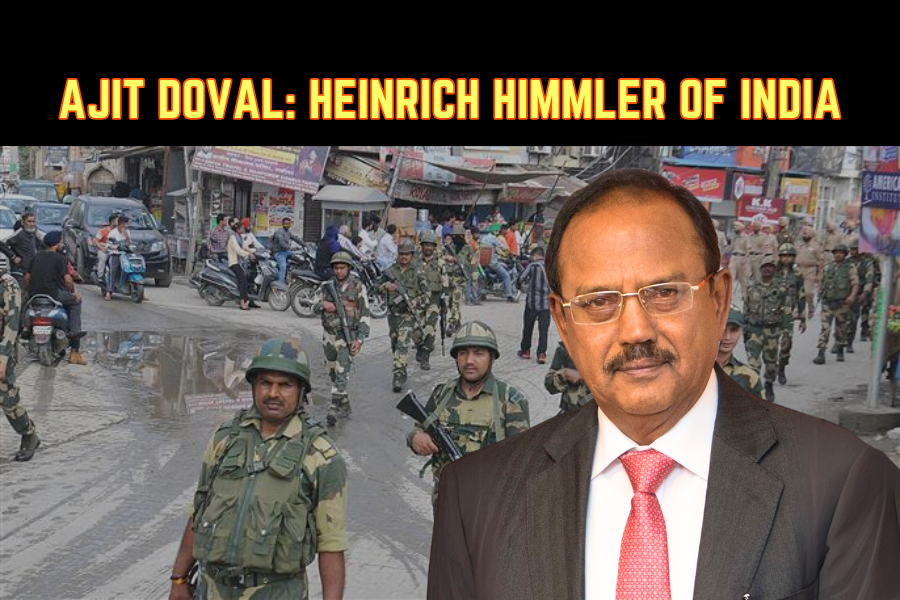
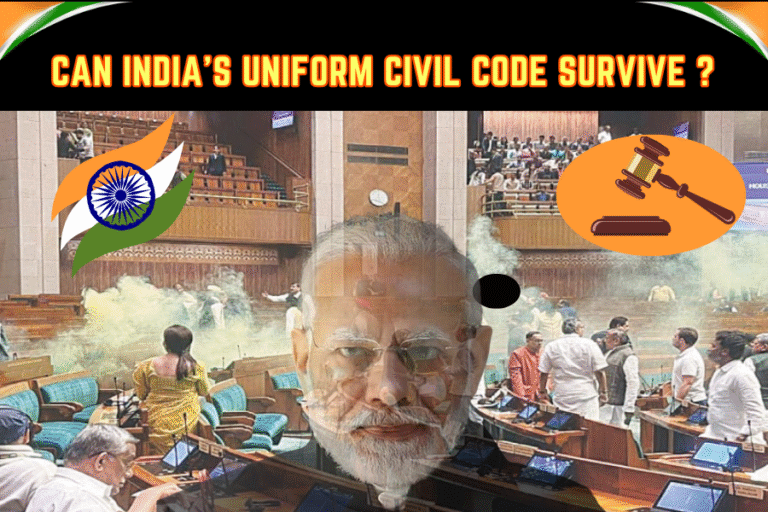

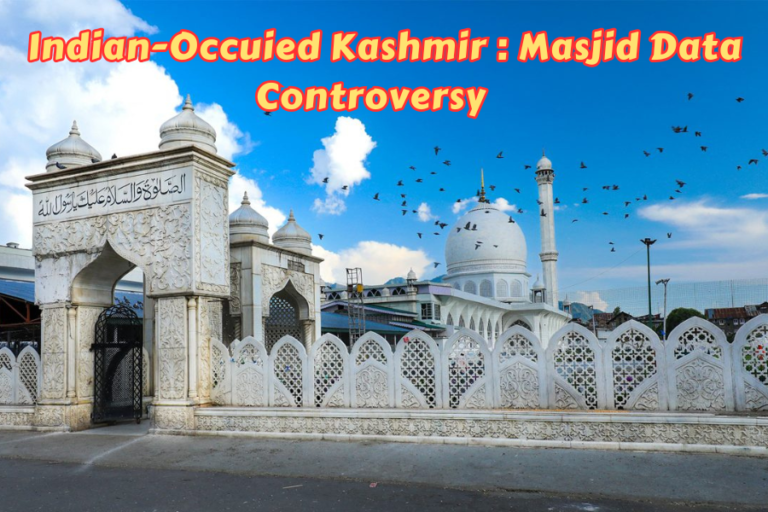
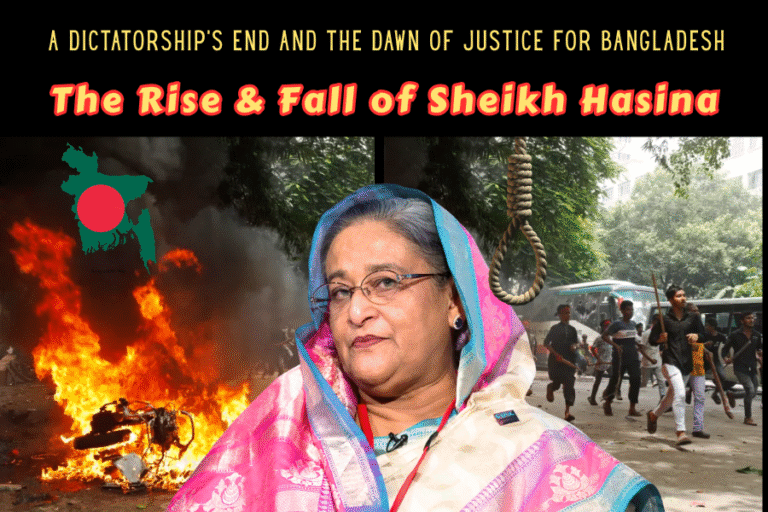
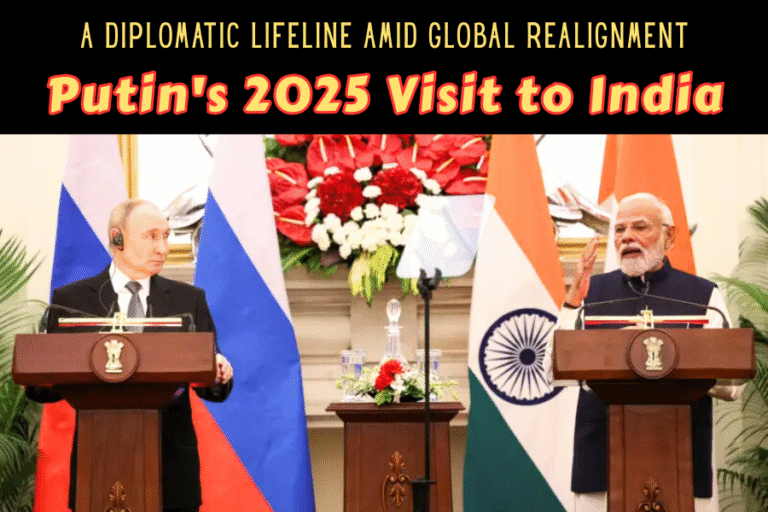

2 Comments